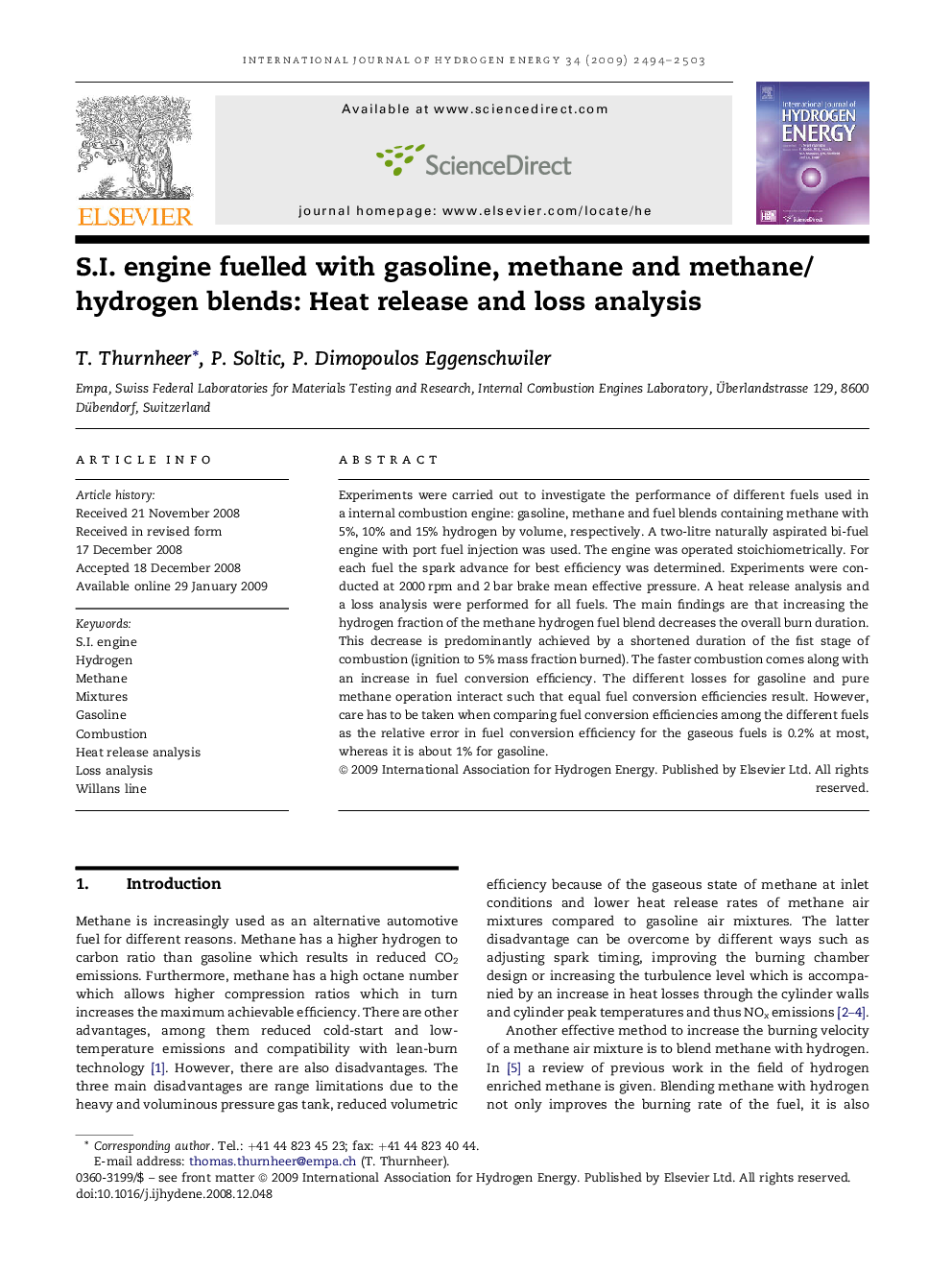| Article ID | Journal | Published Year | Pages | File Type |
|---|---|---|---|---|
| 1283312 | International Journal of Hydrogen Energy | 2009 | 10 Pages |
Experiments were carried out to investigate the performance of different fuels used in a internal combustion engine: gasoline, methane and fuel blends containing methane with 5%, 10% and 15% hydrogen by volume, respectively. A two-litre naturally aspirated bi-fuel engine with port fuel injection was used. The engine was operated stoichiometrically. For each fuel the spark advance for best efficiency was determined. Experiments were conducted at 2000 rpm and 2 bar brake mean effective pressure. A heat release analysis and a loss analysis were performed for all fuels. The main findings are that increasing the hydrogen fraction of the methane hydrogen fuel blend decreases the overall burn duration. This decrease is predominantly achieved by a shortened duration of the fist stage of combustion (ignition to 5% mass fraction burned). The faster combustion comes along with an increase in fuel conversion efficiency. The different losses for gasoline and pure methane operation interact such that equal fuel conversion efficiencies result. However, care has to be taken when comparing fuel conversion efficiencies among the different fuels as the relative error in fuel conversion efficiency for the gaseous fuels is 0.2% at most, whereas it is about 1% for gasoline.
